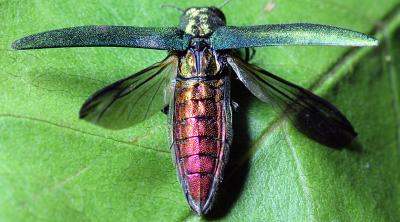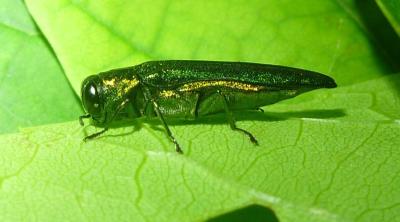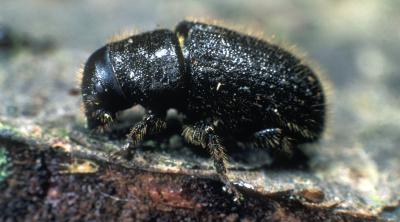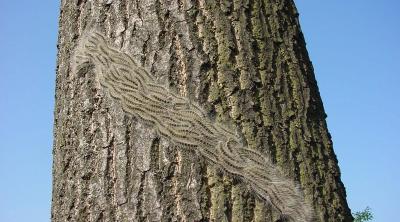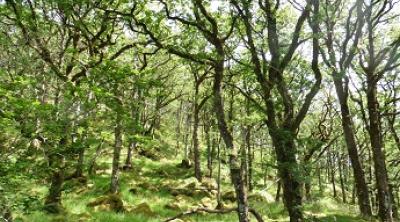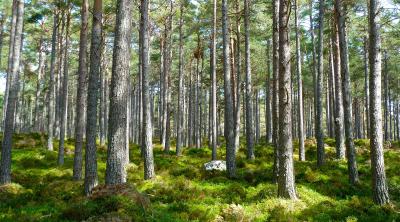News
UK Plant Health Conference
Defra hosted a UK Plant Health Conference in York attended by a wide range of plant health experts and included lots of plant health inspectors. A really interesting conference with lots of good networking.
Launch of the International Year of Plant Health
This is the start of the International Year of Plant Health and the Plant Health Centre working with Scottish government have lots of events planned for this year.
Emerald Ash Borer found in Ukraine
In October 2019, the presence of Emerald Ash Borer (Agrilus planipennis) was identified on Ukraine territory. During the survey, 50 ash trees were found to be infested. On 2019-09-16, phytosanitary measures were implemented and all ash trees were destroyed within a radius of 100 m around each infested tree. On 2019-10-11, all infested and surrounding ash trees were felled. The pest has not been detected in any other parts of Ukraine.
The pest status of Agrilus planipennis in Ukraine is officially declared as: Transient, actionable, under eradication.
The pest status of Agrilus planipennis in Ukraine is officially declared as: Transient, actionable, under eradication.
Plant Health Centre PCN project at the RISS PCN stakeholder event
Kim Davey and Jon Pickup present an update of their work from the Centre's PCN project (see under projects) at the stakeholder PCN meeting in Angus on 6th November 2019.
PREPSYS workshop
On the 6th of September 2019, the Plant Health Centre funded an end of project workshop for PREPSYS - This multi partner project is focused on understanding how we can best prepare for, and manage if necessary, the risks and impacts of emerald ash borer (Agrilus planipennis) and bronze birch borer (Agrilus anxius). The workshop features presentations of the project's findings, and discussions on the threat of these pests from a Scottish perspective.
Import/Export Advice from DERFA - No Deal Brexit
There is a distinct possibility that the UK could leave the EU under a "no-deal" scenario.
The Department for Environment, Food and Rural Affairs has produced guidance documents to guide importers and exporters of plant products to help they determine, if there is a no deal Brexit, what the changes to import and export processes might mean for business.
The Department for Environment, Food and Rural Affairs has produced guidance documents to guide importers and exporters of plant products to help they determine, if there is a no deal Brexit, what the changes to import and export processes might mean for business.
Ongoing controls to protect against the tree pest Oak Processionary Moth
Landscapers, nurseries, landowners and woodland managers are being urged to take action after the Plant Health Service intercepted a number of cases of oak processionary moth caterpillars on trees imported from the continent.
Anyone who has received oak trees imported from the continent should urgently check their trees for OPM, and nurseries should spray trees that they might be holding as stock with the pesticide Deltamethrin as a precautionary measure to stop this pest spreading. It is vital these trees are checked and sprayed now to minimise the spread of this damaging tree pest and protect the health of our oak trees.
Anyone who has received oak trees imported from the continent should urgently check their trees for OPM, and nurseries should spray trees that they might be holding as stock with the pesticide Deltamethrin as a precautionary measure to stop this pest spreading. It is vital these trees are checked and sprayed now to minimise the spread of this damaging tree pest and protect the health of our oak trees.
Sharing Scottish and Indian plant health expertise
Prof. Adam Kleczkowski and Dr. Vincent Keenan, both members of the Plant Health Centre, visited the National Institute of Plant Health Management in Hyderabad, India in April to take part in an international workshop on protecting food security in South East Asian countries by developing early-warning and ready response systems for invasive weed incursions.
Conserving oak- and ash-associated species in the face of pests and diseases
Ruth Mitchel from the Plant Health Centre team has written two articles on conserving oak- and ash-associated species in the face of oak and ash pests and diseases.
Oak trees have long had a reputation for supporting a lot of other species but until recently we had no idea just how many and what those species were. Recent work has listed 2300 species associated with oak, of which 320 are only found on oak and a further 229 species are rarely found on species other than oak.
Ash dieback is caused by a non-native fungus Hymenoscyphus fraxineus, which arrived into eastern Europe in the 1990’s on imported trees. Since then the fungus has spread eastward killing large numbers of ash trees (Fraxinus excelsior). The fungus was first confirmed in the UK in 2012, although it is now known to have been present in the UK for a lot longer. As of Feburary 2018 was found in 49% of 10 km squares in the UK.
Oak trees have long had a reputation for supporting a lot of other species but until recently we had no idea just how many and what those species were. Recent work has listed 2300 species associated with oak, of which 320 are only found on oak and a further 229 species are rarely found on species other than oak.
Ash dieback is caused by a non-native fungus Hymenoscyphus fraxineus, which arrived into eastern Europe in the 1990’s on imported trees. Since then the fungus has spread eastward killing large numbers of ash trees (Fraxinus excelsior). The fungus was first confirmed in the UK in 2012, although it is now known to have been present in the UK for a lot longer. As of Feburary 2018 was found in 49% of 10 km squares in the UK.
130,000 trees to be planted across England to combat climate change
‘Trees are the lifeblood of our nation, and it is more important than ever to ensure they are rooted not only in our countryside, but in our towns and cities too’
More than 130,000 trees will be planted across towns and cities in England to help combat climate change, the government has said.
Grants totalling £10m will be made available through the Urban Tree Challenge Fund over the next two years.
The scheme, administered by the Forestry Commission, will be open to individuals, local authorities, charities and NGOs. Grants will cover the planting of trees and the first three years of their care.
More than 130,000 trees will be planted across towns and cities in England to help combat climate change, the government has said.
Grants totalling £10m will be made available through the Urban Tree Challenge Fund over the next two years.
The scheme, administered by the Forestry Commission, will be open to individuals, local authorities, charities and NGOs. Grants will cover the planting of trees and the first three years of their care.



